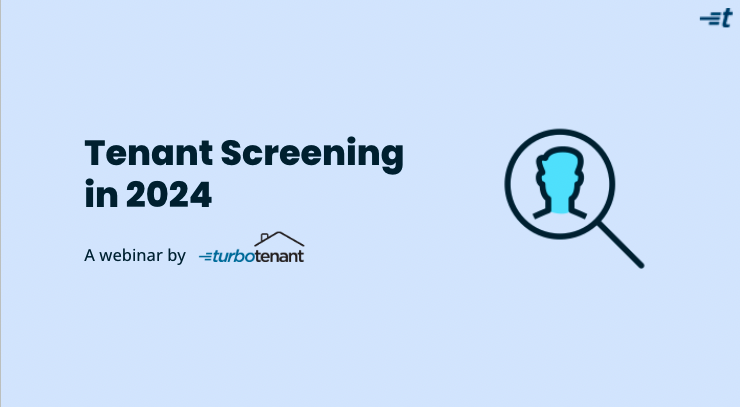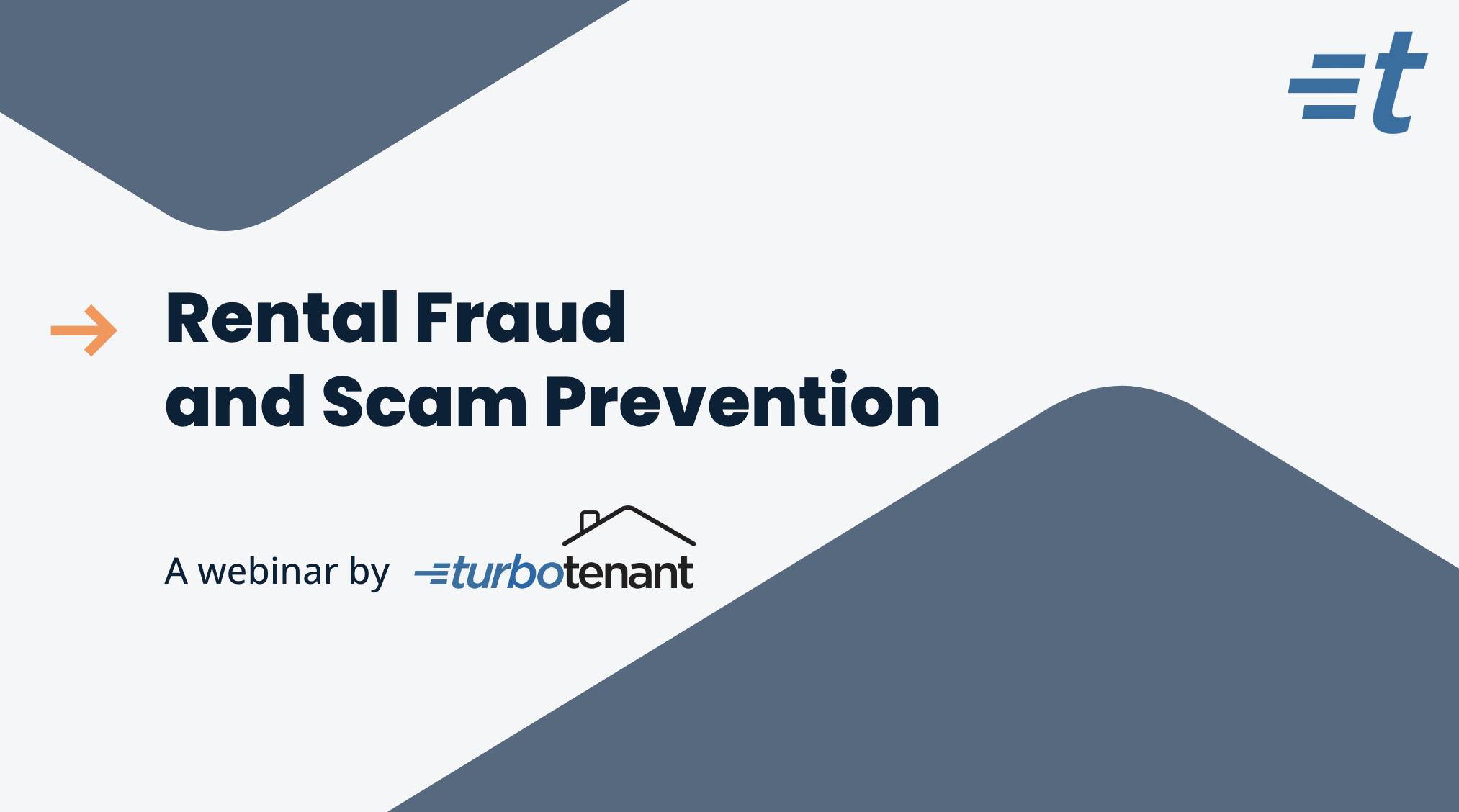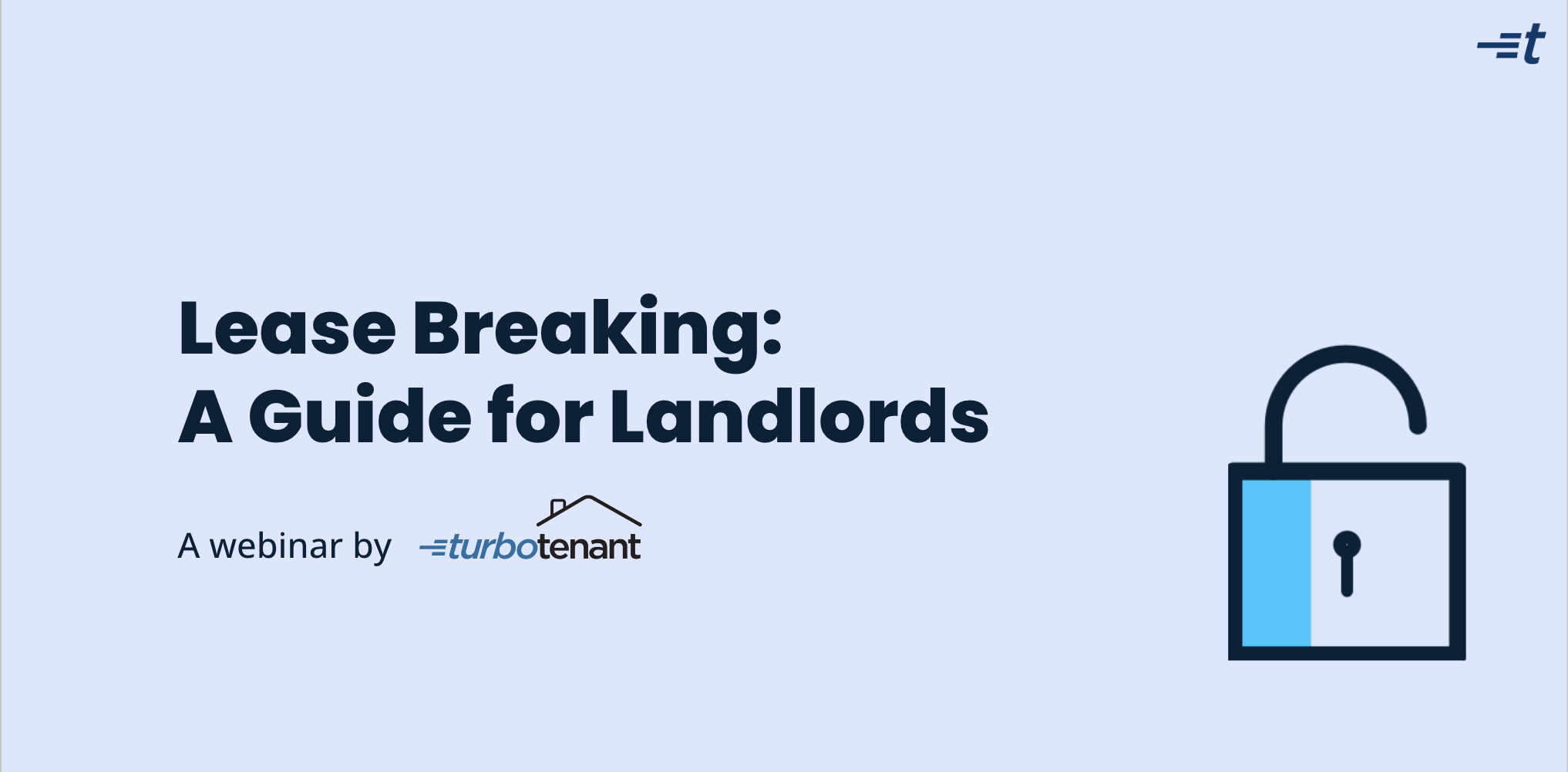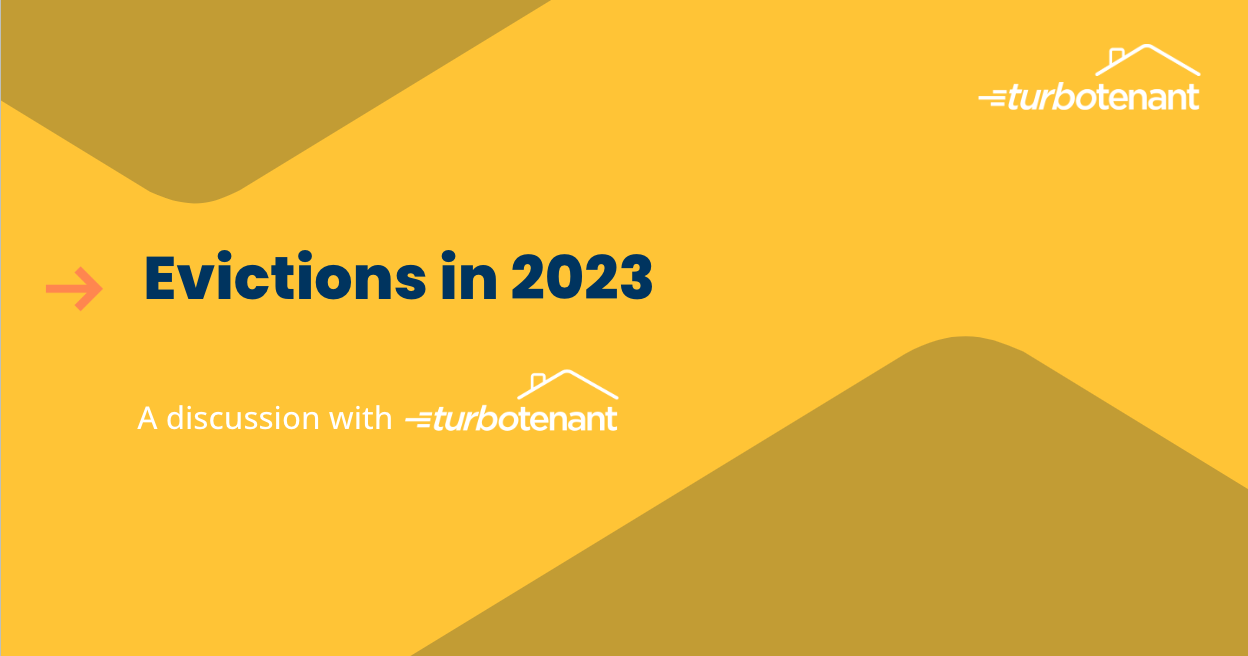Evictions Webinar
In this webinar, we delve into the essential aspects of managing evictions for rental properties. From understanding local eviction laws and maintaining thorough documentation to setting clear tenant expectations and exploring alternative solutions, we cover it all. You’ll learn about the eviction process, handling lease violations, and the importance of effective communication.
Presenters



Key Takeaways:
- Understanding Local Eviction Laws: It is vital for landlords to know their local eviction laws due to variations by location. This ensures they can handle evictions correctly and avoid legal issues.
- Record Keeping and Documentation: Maintaining thorough records and proper documentation throughout the eviction process is crucial. This includes keeping copies of notices sent, rental agreements, and any communications with tenants.
- Effective Tenant Communication: Establishing open lines of communication with tenants can prevent misunderstandings and help manage the eviction process smoothly. It’s beneficial for resolving issues before they escalate to formal evictions.
- Handling Lease Violations: Landlords must be familiar with the specifics of lease agreements to effectively address and enforce terms. Clear guidelines in the lease help manage tenant expectations and behaviors.
- Alternative Eviction Solutions: Exploring alternatives like rent relief resources or cash for keys agreements can be a pragmatic approach to resolving rental issues without resorting to eviction, which can be costly and time-consuming.
- Educational Resources for Landlords: Utilizing educational resources, such as webinars and community forums, helps landlords stay informed about best practices and new developments in property management.
- Tenant Screening Importance: A rigorous tenant screening process can prevent future evictions by ensuring potential tenants have a history of reliability and financial stability.
- Legal and Financial Preparedness: Landlords should prepare for the potential financial impact of evictions and understand the legal proceedings involved, including how to properly file for eviction and handle tenant belongings left behind.
Top questions asked by the audience:
Does a text to a tenant or email qualify for the notice notification?
Best practice is to send it certified mail so that you have that receipt. And again, you have that signature. Tenants can say all day long that they didn’t receive it where they don’t acknowledge it. Somebody had also asked about hand-delivering a notice. Jeanne has commented that you can write a statement where the landlord and tenant sign it acknowledging service by hand delivery.
If they never pick up certified mail, what happens?
You did your part in sending it certified and having that process. You should get notifications when that’s attempted to be delivered but isn’t signed for. And so you have that documentation then to backup to say that I did what I was supposed to do. I can’t help it if the tenant didn’t check their mail or like you have that process in place.
Colorado still has the CARES Act in place? Is that correct?
Yes, that is correct.
How to evict tenants with a verbal contract?
I would highly recommend that you move to a written contract as soon as possible because it’s going to be a lot more challenging to try and evict someone with a verbal lease or a verbal contract. You have nothing to point back to nothing to say, well, we’ve discussed this and I expected this behavior and I got this behavior. So, I would definitely in that case, look into a local real estate attorney to help you navigate the situation.
You can start with a least violation letter instead of jumping directly into an eviction so that you’re at least making it’s sometimes called a notice to cure or quit so you either fix the problem or quit doing the problem or you get out. And so if you give them that notice you’re at least starting the conversation to say this is something that is a violation and then you can go from there.
Do you find that evictions that you’re seeing in your research are due to not sufficient income or perhaps renters taking advantage of non-eviction restrictions?
Over 80% of evictions filed are due to non-payment rent. So by and large, that is the issue. It’s that people are not paying their rent. There are, of course, people who are maybe looking for loopholes. Ways to stay in a property without paying like the squatter from our landlord’s story earlier. But they’re going to be in the minority for sure.
Why would you want the renters’ bank statements for evictions?
Having that bank statement that the renter provided you with their application, you’re saying this is what the renter gave me, saying that they could support the rent. This is how I qualified them. And I’ve actually had a few cases where the bank statement ended up being fraudulent. And so it was a bigger eviction case than what I had come in for. But you have those documents that your renter should have provided to you in the screening process. And so you’ve done your due diligence again as the landlord, making sure they can support that and they agreed to it in the contract. And so here’s the evidence. And so that’s why you want to hang on to those things.
Do you have any forms for evictions?
So in our forms pack, we do have a notice that you can use to make sure that you. But you should also check your state and local laws and guidelines because some places have specific documents that you need to submit. And again, you should be doing a notice before you file for the eviction. So you want to make sure that you give your tenant the opportunity to fix or correct what they have violated in the lease agreement before you immediately go into that legal action.
Can you still report a tenant to agencies that you had wished to evict, but chose to buy them out so other landlords know it’s not a good tenant to live in their property, therefore creating a negative record for destructive tenant?
No, you cannot. If you elect not to evict them, there is no way to go to the reporting companies and say, hey, you need this on their record. However, if their next landlord reaches out to you, they can ask questions of course how the tenant was participating in your lease process, how everything went. And at that point you would be fair to share, hey, lease did not get paid. Rent did not get paid. But no, you cannot make a report to the actual like screening systems or anything of that nature once you decide not to evict.
How do you report a bad tenant to a credit bureau?
So when you file an eviction, that starts things off, right? But really what ends up lasting on a tenant’s record is collections. So let’s say that you move through the eviction process and you don’t recoup the money owed, but you want to try, you could then move through and submit for collections, basically detailing how much they owe, having a collections company try and pursue it. So that would be an option. Evictions are going to show up on tenant screening reports, most likely, if your state allows it, whereas collections are going to show up any time that credit report is pulled. So yeah, two ways.
What about an eviction when they have applied for rental assistance?
Applying for rental assistance is not the same as getting your rent paid. So just because you applied doesn’t mean that you’re going to get the funds as the renter. And if you are filing eviction, and that’s the point that your renter reaches out for rental assistance, you don’t change anything with your eviction until you either have money in hand from that third party or you have an agreement that they’re going to pay a certain amount. Because up until then they still owe those funds and you’re not making an agreement with the rental assistance company that’s something that the tenant is arranging you can provide the resource, but you’re not changing what is due until you have money in hand. And in some places in Charlotte, for example, I could not accept the payment from that rental assistance company. If I have already started the eviction process, unless that company is paying the amount due in full. So the renter needs to know ahead of time that they’re going to be laid on rent and start that process and start that communication with me before it gets to that point.
Can you still increase the rent, even if the tenant didn’t sign?
As long as you didn’t try and inform your tenant of the rent increase by an electronic means and you give them the proper notice. Then even if they don’t sign you should be well within your rights. However, if you do give them an email and that’s the only way you notify them that this is going to happen, or you don’t give them enough notice at that point, you are not following the law. And so it would probably not be applicable.
Transcript ▼
Krista Reuther:
Hello, hello, welcome in. We are here today to talk about evictions in 2023. Now this is going to be a discussion. What does that mean, you might ask? Well, that means that you will hear Samantha and I talking a little bit, but then we will go ahead and open the floor making sure that we have time to answer your most pressing questions about evictions possible. Now bear in mind a couple of things. One, we are going to record this for you and send it out afterward. So don’t feel like you need to strain your hand or get a cramp trying to write down all of the brilliant insights that Samantha and Jeanne have to share. We will send everything over to you so you can absorb it in your own pace.
Additionally, we are going to be covering an overview of evictions. We are doing that because evictions and eviction law changes from county to county. So there are some notes where we have state-specific information, but if you are coming to me and saying Krista, I have a rental in Southern California in this very specific county and XYZ has happened. We will do our best to present you with actionable information, but we will also make sure to highlight that you need to check your local laws because again, things really do change from even just two miles down the road to now. So bear that in mind. Feel free to use the chat to ask questions. We also have the Q&A. Anything I forgot Samantha?
Samantha Yadav:
I don’t think so. We’re here to help. So I hope I see lots of questions coming up in the chat and Q&A. Wonderful.
Krista Reuther:
Let’s dive in. The suspense is on purpose. Okay. So today, like I said, we are talking about evictions in 2023. So that breaks out to four main sections of the presentation. We’re going to have a brief refresh of the eviction process, along with the latest eviction data from eviction labs. We’ll go into some frequently asked questions as asked by y’all. And then we will go ahead and move into the live discussion where you can present even more questions and we will work through them together.
If you are feeling good, let’s start with a poll. All right. Okay. Just a few questions for you, really looking to get a sense of who’s in the audience today. You know, we are lucky enough to do this on a regular basis and you would be surprised how much these demographics change from presentation to presentation. So getting this information from the jump helps us tailor our thoughts and tips to where y’all might be at. Thank you in advance for putting in your information.
Now, Samantha, if the folks don’t know you have a plethora of rental experience on the property management side of things. Have you ever had to conduct an eviction?
Samantha Yadav:
I have conducted probably hundreds of evictions at this point. I was a multifamily property manager for just about a decade so managed up to 1500 units at a time depending on where it was, both in Colorado, North Carolina, South Carolina. So yeah, I’ve done non-payment evictions, I’ve done lease violation evictions. I’ve had evictions for misfiring guns in apartments and unauthorized pets and threats and all kinds of fun things so I’m pretty stoked to be here and to talk about this.
Krista Reuther:
Very stoked to have you. Again, your experience just makes this the presentation to be at so two more seconds if you haven’t had a chance to click a couple buttons now is your last call. One, two. Alright. So, we have some results here you can get a sense of who your fellow landlords are in the chat, a good spread of experience and a good spread of the number of doors owned although we are favoring smaller portfolios today. Nothing wrong with that it’s not the size of the portfolio. It’s everything else. And a good split on who has attended one of these events versus not so if this is your first event we’re really happy to have you.
And we won’t keep you waiting, although last note here. So, I’m going to go back to the chat here. It’s really interesting to me that almost 40% of y’all have never evicted anyone and then just under 35 have fully evicted someone. So, a great spread of experience make sure that you are using the chat to both ask questions of your fellow landlords and offer answers or tips if you have them. This is a community we’re building so we need your participation for that.
Okay. So, I promised you a brief refresh of the eviction process. And that’s really important, even if you’ve been around the block 200 times, which is a real number I am a mathematician. And you’re like Samantha you’ve done this before it’s old hat. It’s always good to go back to basics and I promise not to spend too much time on this section. I just want to make sure that our newer landlords have a good sense of what to do as well. So, feel free to chime in if this process is different in your state, share your state and what is different about it in the chat.
But let’s hop right in. So, the eviction process can be boiled down to five main steps. The first one is going to be a little bit of research. So we have here revisit EARLTA and your local landlord tenant laws. Does anybody know what EARLTA means in the chat? It’s okay if you don’t. It’s my job to know these things and it’s your job to learn them. So it is the Uniform Residential Landlord Tenant Act and it basically outlines your responsibilities to tenants such as providing a habitable environment and their responsibilities to you such as paying rent.
The reason I have you start there first is to make sure that whatever violation or situation is going on is something that you can actually pursue and that’s why your local landlord tenant laws are also crucial to review at this stage because let’s say you have a tenant who actually this is a real situation. So someone wrote into our customer service team, they’re the best and we were discussing it because this person had purchased a property from a different landlord so they had inherited tenants and the inherited tenants had owed the former landlord money.
So the new landlord wanted to evict the former or excuse me the new landlord wanted to evict the current tenants because they owed the former landlord money and you can’t do that. That is not you have to you have to start the proceedings out as the new landlord you can’t just move into the eviction phase you have to provide the notice and everything else that we’re going to go through in this process but that’s why I’m telling you go back to your basics look at your laws things might have changed since you last had to file an eviction.
It pays to be in the know especially because this process costs a lot of money, takes a lot of time, stresses everyone out on both sides. So do your homework before you do anything else and that’s why your second step is also going to be to review your lease agreement. Your lease agreement is the living document that binds you and your tenant together. If there is an issue that they are violating like let’s say you have specific parking rules in the lease and they are not parking where they’re supposed to be then you have something concrete to go back and say okay in section 2.1 you agree to xyz here’s here’s when you did it you need to now fix your behavior right you need to make a change because you’re no longer acting in line with the lease.
You might find though that the behavior is not outlined in the lease there isn’t something stipulating that they need to change or that you know some situation has popped up that you weren’t thinking of when your lease was originally created. So again do your homework look at what your specific lease terms are and make sure that you are in the right to move forward with this process before you waste any money. Okay so to that end your lease and if you’re old hat you know your lease should clearly define things like your rent due date the security deposit amount what happens when unpaid rent persists over a certain number of business days all of that should be in line with your local landlord tenant laws and then if there is a violation you can move on to step three. In this case oh there we go.
Step three is of course notifying the tenant so you have to post an eviction notice that details all of the information that you would expect right so why are evicting them this is a great place to specifically mention like the section of the lease that they’re breaking it strengthens your argument and documentation. You also want to detail any damages that they owe including late fees just boil it down to a dollar amount along with a time frame for paying you that dollar amount as applicable to your situation and finally at least an eviction date if your demands aren’t met.
So most of the time most states require you to send this via certified mail there has to be proof that you sent this notice so even if your state doesn’t require to be sent that way it’s a good way to make sure that there’s a signature you have documentation saying the tenant saw this information and chose to do whatever they choose to do. So for that reason, do not try and give a verbal notice really just keep your your t’s crossed and your eyes dotted by creating a paper trail okay it’s very important.
So once you have provided your notice and it meets all of the requirements both listed here and what’s required in your local area you can then wait for the tenant to either cure their behavior let’s say they pay you everything that they owe in which case you’re good to go you don’t have to move forward with the eviction process if however the situation doesn’t change or let’s say at this point there isn’t an opportunity for them to change their behavior and it’s just fully like this is unacceptable you need to go still need to give them the proper notice period once that is over you can begin the eviction process in court.
So typically that means gathering up all of your documents I said it earlier documentation is going to be your best friend both throughout this process and just as a landlord in general. So gather up everything you need which is going to include your lease agreement, the renter’s license, a copy of the notice that you sent, any kind of communications you’ve had written communications such as texts and emails, photos of the damages, bank statements, anything else that helps illustrate the situation at hand for the eviction court.
Get it all together, submit it with your claim and then you start the eviction process. Now typically the eviction process takes at minimum a month and there are definitely courts in the U.S. where that is significantly backed up a lot of them are still backed up due to the COVID-19 pandemic and the moratorium that took place then so I’m hopeful that the courts will start evening out but for now it’s still it’s a long long process and a very expensive one we’ll touch on that a little bit later.
Once you go through it you’ve presented your evidence you’ve shown up to your court dates you’ve done everything that you need to do if the judge rules in your favor then at that point you can evict the tenant and regain property. So to put that another way up until that point you are not allowed to do anything like change the locks shut off the utilities, barricade the door that would all be considered self-help evictions and those are illegal so don’t do that even if you have a rock solid eviction case if you start to stray and your behavior gets bad like I just mentioned you go in and change the locks you are at risk of losing your case and you know facing monetary damages for anything depending on where you live.
Follow the process it’s long it’s painful it’s bad on both sides but it’s better than screwing yourself over which is entirely. So once the tenant can be evicted, that is the point when you can come in, you can clean, you can change locks. Now there are specific laws about property abandonment, which you should be aware of, especially if, you know, your tenant decides to just leave and you don’t see them again. They’re not there at the eviction date. We’ll touch on that briefly, but again, revisit your local landlord-tenant laws to make sure that you are doing things properly and to avoid any kind of issues.
Samantha Yadav:
All right. I got a couple of comments in the chat that we can talk through if you’d like to stop for a moment. Yeah. Nice. So Barbara is asking. We had a couple of questions about the notices. Barbara is asking if a text to a tenant or email would qualify for the notice notification. Best practice is to send it certified mail so that you have that receipt. And again, you have that signature. Tenants can say all day long that they didn’t receive it where they don’t acknowledge it. Somebody had also asked about hand-delivering a notice. Jeanne has commented that you can write a statement where the landlord and tenant sign it acknowledging service by hand delivery.
Personally, what I did is I would send it via certified mail. I would have sent it via email. I would attempt to deliver directly to the door with the same notice and I would knock on the door. If they showed up at the door and answered it, I would have them sign that copy. And then I would take a picture on my phone, hand them that copy, and then I also have that backup from the certified mail. If you want to cover all bases, you can of course send it to them via email or text as well. You cannot over-communicate these types of things, but I think the important thing is making sure that you have some sort of receipt or signature or acknowledgement from the tenant. So email or text may not be the best method if that’s the only method you’re using. Well said.
See, I think some of these other ones we can scoot till the end. If they never pick up certified mail, you did your part in sending it certified and having that process. And you should get notifications when that’s attempted to be delivered but isn’t signed for. And so you have that documentation then to backup to say that I did what I was supposed to do. I can’t help it if the tenant didn’t check their mail or like you have the that process in place. And then also if you have those emails or those texts you can say I further backed it up here and have those receipts, but again they may not be considered legitimate if you don’t have that certificate like you would with the certified mail.
Jeanne also commented to say that service by a process server is also an option. And in some states that is a requirement so that’s again, an important to check your state and local laws. Thank you.
a: All right. Great answers. Really thankful to have you here. Let’s go on and look at current eviction data we will circle back to any lingering questions in the chat.
So, the data this is one of my favorite parts of my job, getting to talk with you about the real world real world implications of these kinds of thoughts theories and processes right. So, the chart that you’re seeing on screen comes from the eviction lab. The eviction lab is an organization dedicated to studying evictions in the United States. So, for 2022 they looked at 10 states and 34 cities to assess evictions, how they changed in terms of filing outcomes cost, etc.
So what you can see here is a pretty steep jump, especially looking from April to August of last year. And that means that more evictions were being filed across these states across the sites in question. In fact, it was a 78.6% increase year over year, which is a pretty mighty jump. Additionally, eviction claims have gotten more expensive. So, they’ve actually increased by about 40% on average, which is insane, because evictions were already expensive so the fact that they’re getting more expensive is really daunting, particularly because, and I probably don’t have to tell you this if you’ve been through the process, but you don’t always or even typically recoup lost rent when you go through the eviction process. So, these are costs that you are likely going to have to pay and will not be able to recoup, although you can write them off on your taxes. Make sure you check with your accountant before you do so, but it is a business expense so that is something to bear in mind.
You might be wondering, well, Krista, why did these things jump what’s going on? What’s the greater context here? Well, of course, early in the pandemic, we had court closures and the eviction moratorium that we discussed briefly earlier. So, in 2020, there were roughly like half of the number of eviction cases that you see here, 540,000 were filed across all the places where the eviction lab collects data. That was really low. So, that was of course really low because of all the laws that were put into place. Since most of the moratoriums, all of them now have been expired and people are allowed to file evictions again. Numbers have skyrocketed. So, this number that you’re seeing here is even more than what we would typically see in a quote-unquote normal year. And it is what I suspect a reaction to the fact that the moratorium had been in place for so long that people were unable to file for evictions now that the floodgates are open, people are jumping in to go ahead and make the cases.
Also important to note, I think that it’s worth saying the landlords in these cities in the 34 cities that were studied by the eviction labs have claimed a total of 2.15 billion. That’s with a B in eviction cases. That is an insane number. That is absolutely insane. And more than half of that amount is 1.19 billion were claimed in 2022 alone. So, very fascinating to see how much money goes into this, especially since it proves to be such a frustrating process on both sides. But alas, that is where we stand currently. It’s gotten more expensive. It’s gotten more prevalent.
Moving right along here. As we know, there are different experiences in each state, depending on the laws that they have protecting landlords protecting tenants, etc. So, as of 2023, the strictest states for tenants. So least tenant-friendly states regarding evictions are as follows. So, the state of Texas, Texas. Now, Texas shouldn’t be a surprise they have a wide range of landlord advantages and the state takes lease violations super seriously. So, the Lone Star State typically favors landlords in cases of lease violations, which includes preserving the landlords rights in the event that the lease gets broken, right? So that means rent relief, compensation or repossession of the rental is easier to get in Texas than almost anywhere else. And that is a common theme in all of these five states listed, usually they have rules that are favoring the landlord and favoring the investment versus supporting the tenant in this struggle, right? And as much as I like to get away from the idea of landlords versus tenants going head to head, unfortunately, that is what an eviction is. So, with that in mind, if you are a landlord in these states, you are likely to have an easier time evicting a tenant versus the landlords in our following states.
So, if you live in Vermont, well, you have great ice cream. I love Ben and Jerry’s, but you also have really friendly laws for tenants, which, you know, it’s just the name of the game. Some states have those, some states don’t. But what does that look like in Vermont? Well, you have to give a notice of 14 days for unpaid rent before you can move through with the eviction, right? Landlords also have to give a 60-day notice before evicting tenants whose lease has expired in Vermont. And the eviction process itself can take four to seven months in Vermont, and it might be even longer if the tenant requests a jury trial. So one of the common themes with these states here is that the tenant has more flexibility, more notice required to be given, and in some cases like in Vermont can make additional requests that lengthen the process of eviction. One last fun fact here: In Rhode Island, our number three most tenant-friendly state, a landlord can only begin eviction proceedings after the rent is 20 days past due, and then you must provide a five-day notice to pay or vacate after that point. But if the tenant doesn’t actually comply with your requests, only then can you file for eviction.
So again, just lengthening the process, which is already long, which is already expensive, which is already stressful, which is why whenever possible, we recommend looking for different solutions outside of the eviction process. So, what’s going on here? I don’t know. There we go. I’m going to pause really quickly because I said a lot of words all at once. Any pressing questions in the chat that we should attend to before moving into other pressing questions?
Samantha Yadav:
A couple landlords are asking where they can find local and state landlord-tenant laws. Where would you guide them to go?
Krista Reuther:
Wow, what a beautiful idea. So, TurboTenant does have local landlord-tenant laws on our site. So I’m hopeful that Jonathan, our link wizard, will try to find a way to get to the local tenant laws. I’ll drop a link in the chat. Additionally, I would go to your local government’s website. So, for example, if I was researching Colorado evictions, I would Google Colorado.gov evictions. Three words. Put it in there. It should spit out your government site. And if you can get more specific, like for example, let’s say I have a property in Cook County. I’m in Illinois. It’s my dream. In that case, I would specifically search Cook County.gov evictions because I want the most specific information to make sure that I am following those laws. Nice.
Samantha Yadav:
Let’s see here. Somebody was asking, Colorado still has the CARES Act in place? Is that correct? And Jeanne has confirmed that is correct. We had a couple of people asking about evictions for squatters. So I did throw a link in there, which is a popular blog about squatters rights. And we had a landlord secretly tell us to host and panelists about their experience. They had a nightmare to get rid of a squatter. They kept smashing the furnace and overflowing the tubs. And then the court’s code enforcement told them the landlord, if they weren’t able to fix the furnace again, they would have to be evicted due to inhabitable housing. So the courts were so backed up. The squatter threatened also their husband, but they were happy that they were removed by code enforcement. So having a big maintenance issue and being uninhabitable actually worked in the landlord’s favor in this situation. Oof. That sounds very stressful. Does sound very stressful. Let’s see. We also have somebody asking how to evict tenants with a verbal contract. Now that’s something I’m not familiar with. Do you have any insight to that, Krista?
Krista Reuther:
Oh my. So I’m assuming that you have a verbal contract as your lease. If that’s the case, I would highly recommend that you move to a written contract as soon as possible. Because it’s going to be a lot more challenging to try and evict someone with a verbal lease or a verbal contract. You have nothing to point back to nothing to say, well, we’ve discussed this and I expected this behavior and I got this behavior. So, I would definitely in that case, look into a local real estate attorney to help you navigate the situation.
Samantha Yadav:
So, you can start with a least violation letter instead of jumping directly into an eviction so that you’re at least making it’s sometimes called a notice to cure or quit so you either fix the problem or quit doing the problem or you get out. And so if you give them that notice you’re at least starting the conversation to say this is something that is a violation and then you can go from there. Hopefully tenants will just be like, oh I didn’t know and then fix it and it won’t be a problem and you don’t have to evict. But if not at least you have that first step which is a written notice to then sort of supplement your eviction process.
Krista Reuther:
Yes, 1,000% and to jump on that train really fast. As Samantha said, don’t jump immediately to evictions. I can’t stress enough in all the research that I’ve done. Evictions are nasty for everyone. So, one, just as a good business practice you want a paper trail, right? So a lease violation letter that looks pretty official, that is going to do you wonders because most tenants want to follow the rules. They want to have a peaceful relationship with their landlord and just live their vibes. So having that kind of formal letter say, hey, you need to change your behavior or else. That can usually get people to act appropriately. If it doesn’t at that point, you know, keep moving through this process but you’d be surprised by how much just a good sense of communication can circumvent some of these larger, costlier issues. Absolutely.
Samantha Yadav:
Let’s see. Do you find, Krista, that evictions that you’re seeing in your research are due to not sufficient income or perhaps renters taking advantage of non-eviction restrictions?
Krista Reuther:
Ooh, so such a good question. Over 80% of evictions filed are due to non-payment rent. So by and large, that is the issue. It’s that people are not paying their rent. Now, we could get into the weeds about why people can’t pay their rent but we’ll say that for another discussion. There are, of course, people who are maybe looking for loopholes. Ways to stay in a property without paying like the squatter from our landlord’s story earlier. But they’re going to be in the minority for sure.
Samantha Yadav:
And that’s also a good reason somebody had asked why would you want the renters’ bank statements for evictions. If it is for non-payment especially, having that bank statement that the renter provided you with their application, you’re saying this is what the renter gave me, saying that they could support the rent. This is how I qualified them. And I’ve actually had a few cases where the bank statement ended up being fraudulent. And so it was a bigger eviction case than what I had come in for. But you have those documents that your renter should have provided to you in the screening process. And so you’ve done your due diligence again as the landlord, making sure they can support that and they agreed to it in the contract. And so here’s the evidence. And so that’s why you want to hang on to those things. Yes.
Krista Reuther:
Yeah. Said another way. You want to be able to present a case saying this is what we agreed to. This is the work that I did to qualify to make sure that everyone could do this. These are the issues showing that they are not committing what they’re supposed to be doing based on our signed agreement. We are looking for a resolution. So really keep your ducks in a row. Keep all your documentation. Have a good tenant screening process. We definitely have thoughts on that if you need them. But you want to keep everything together so that if it does go to court, you can show your thought process from the moment they were just a lead to the moment that the first violation happened.
Samantha Yadav:
Let’s see. Do you have any forms for evictions? So in our forms pack, we do have a notice that you can use to make sure that you But you should also check your state and local laws and guidelines because some places have specific documents that you need to submit. And again, you should be doing a notice before you file for the eviction. So you want to make sure that you give your tenant the opportunity to fix or correct what they have violated in the lease agreement before you immediately go into that legal action. Yes.
Krista Reuther:
And your local laws will dictate how much notice you have to give them. You might also need to consider why you’re evicting them in conjunction with where you live because, you know, a tenant not paying rent in Colorado, for example, might need three days notice. They might also need 91 days notice. That is a true fact. There are vastly different amounts of notices needed for Colorado tenants. So do your homework, revisit the steps. That research is your first and second step of this process. So really make sure you do it.
All right. Anything else for now? Or shall we scoot along? Scoot it along. We’re scooching. All right. Here are some of your most burning questions when it comes to evictions. Now bear in mind, we still want to hear any other ones that pop up. So you’re not off the hook just because I’ve got questions on screen. Keep them coming.
But starting off, one of the biggest questions that is asked most frequently is the cost, right? I’ve told you throughout this entire process that it is very costly. But what does that look like? On average, it costs $3,500 just to file an eviction and move through the process. That does not include any kind of missed rent, late fees, etc. This is just the cost to evict a tenant minus anything else that they owe you. That cost comprises a few things. You’re going to have to pay your court fees, legal fees, any kind of tenant turnover fees, and then of course things that are harder to put a price tag on like your time and stress levels.
I noted here that some costs may be tax deductible. As I said, that’s true. If you have a good accountant or if you are your own accountant, these are the kinds of business expenses that you should be tracking along with receipts, dates, etc., so that you can write this off at the end of the year. If you want more information about things you can deduct from your taxes, we do have a tax course available for you. Jonathan, my trusted link man will drop one in the chat if he has a chance.
All right. Okay. So, how long does the eviction process take? Well, if you’re not in Vermont, you’re sitting pretty, because it’s two or three months on average for everybody else. So again, this is going to depend on your state, how backed up your courts are, and of course the unique eviction situation that you find yourself in. But by and large, it’s going to be two to three months on average.
All right. So, I alluded to this. Can I recoup unpaid rent? The answer is maybe. So it’s going to depend on your accounting method. If you are collecting rent upfront, let’s say you have people prepay, then at that point, you’re in a really sticky situation. That is going to be difficult because you have money, but they owe you money. Let’s start over. That’s too confusing. So cash accounting, right? That’s when you have rent debt, it’s uncollected income. At that point, you can’t recoup it. You don’t have their money yet. You’re not going to get your hands on their money. They’re unable to pay you. Accrual accounting is where you have accrued rent. It’s part of your income, but you haven’t collected it yet, and that you can write off as bad debt.
So it really depends on how you or your accountant is handling your books. Alternatively, you could go through this. You might not get it. You might. The eviction court could help you. Their final finding could help you, especially if you decide to go to small claims court. That’s really the spot that most states will allow you to try and claw back some of your money. But bear in mind that if someone can’t pay you rent, there’s not a good chance that they have the money to pay you and go through the small claims court process. So you’re fighting a losing battle either way. It’s sticky. It sucks. That’s why I don’t recommend moving to an eviction unless it is your last choice. Because unfortunately it’s going to be costly and you might not even get everything that you need. Really, once you’re going through an eviction, your mindset should be not, “I’m going to recoup all the money I’ve lost,” but rather, “I’m going to reclaim my investment property and start earning again.” Just unfortunately the name of the game at this point.
Okay. So personal items left behind getting left. That is tricky, right? Again, I mentioned this a little bit earlier, but abandoned property is treated differently state to state so you really need to make sure that you look up your state’s rules, particularly about notifying your tenants of the abandoned property, having to store it, dispose of it, use funds if you decide to sell it if that’s allowed in your state. Bear in mind that of course you can clean up trash, but if you have a hoarding situation, let’s say, and it’s hard for you to determine what is trash and what are possessions.
Don’t be afraid to ask for help. Get someone involved in your state, whether that is a local attorney, or perhaps a non-emergency sheriff who’s seen evictions before. You don’t want to mess up at this stage because you’ve gone through the entire eviction process, and you don’t want to ruin it now. Samantha, have you seen people leave stuff behind after an eviction before? Absolutely.
Samantha Yadav:
Before, during, after, yep. Yeah. How big of a headache was it for you? One time I had 13 apartments that were rented by a sports ball team, and they were evicted and left everything in every apartment. So our team, my maintenance team had to pull everything out and leave it basically on the curb for a period of time so that things could be collected, and then they weren’t collected. So then it was sort of dumpster diving for anybody who wanted it, and then everything else had to go into the dumpster. Thanks.
Krista Reuther:
See, it gets complicated fast. So make sure you know your rules, your timelines, etc., and then hopefully you won’t run into a similar situation as Samantha’s. I mean, you did good, but still it’s a lot. It’s okay.
All right, so alternatives to evictions. I’ve made my stance pretty clear. I think that it’s best to pursue an alternative if when you can, not always possible, but sometimes it is. So there are of course a few different ways to go about it. Here are two of the most popular ones:
Number one, providing your tenant with rent relief resources. That does not mean that you are paying their rent. In fact, that means that you are pointing them to some kind of helpful body, whether that is a nonprofit in your area or your local government, which offers rent relief resources so that you can still get paid and they can have the rent relief that you set wiped off without you losing out. So to find that I do a similar search, I would look up, let’s say, I live in Denver, so I would say Denver, rentrelief.gov, into Google, hit enter and see what pops up to find local resources.
Alternatively, you could pursue a cash for keys arrangement. Now, once again, we have to be in the mindset here of the eviction is really just a way for me to recoup my property and start earning again. That is the best way to make cash for keys palatable because inherently what you are doing is you’re going to the tenant. You’re saying, hey evictions cost a lot of money, it’s going to go on your record for at least seven years. We could recoup this. In fact, I’ll help you leave. I’ll give you 200 bucks to move out by June 30. They sign an agreement, you sign an agreement, they leave and you can then reclaim your property. It doesn’t feel good most of the time when I present that option, people are like, why would I pay someone for breaking their lease for not giving me money? And again, you really have to think of it as you need your property back so that you can get a new tenant in who can pay you that monthly income. And this person is now unfortunately standing in the way either from their own actions or because they are unable to pay rent for some other reason. But regardless for you to get your investment back, you’re going to need to reclaim the keys, which means getting them out so you can either do that through the eviction process, which takes a long time and costs a lot of money, or you could pay them a little bit of money and have them leave on better terms and probably hopefully with less property damage.
All right, now that I’ve regained the ability to talk, I have one more frequently asked question for you, which is of course how to avoid an eviction in the first place. One, make sure that you have an airtight written lease. You can review it with a real estate attorney if you need to. I know that TurboTenant has great leases that we build for you as you move through the process answering questions if you want something that is easy to access but still good and legally binding. Additionally, you’ll want to prioritize tenant screening. Make sure you’re looking at things like the applicant’s bank statements. If something looks weird, let’s say that they’re changing out their zeros and O’s and it just doesn’t look right or all of the totals are rounded numbers or it just doesn’t look like a professional put together this documentation.
Ask for more information, get more documents sent in. If they’re a bad actor at that point they’ll likely leave because you’re not a good mark. If they are someone who’s genuinely trying to rent your property, they will do the work to make sure that they are qualified. You also want to make sure that you’re reaching out to their former landlord and asking questions. We recently published a blog about this, questions that you should ask a former landlord. So go ahead and check that out when you have time so that you are making the most of this process and finding a tenant who will not lead to an eviction.
Lastly, tip of the day: if you remember nothing else, remember this, maintain good documentation. You just have to do it. It’s you are running a business, you need this documentation so that you can support yourself if an eviction does come to pass. Hopefully it won’t but it’s better to be prepared versus racing through file cabinets at the 11th hour and crying and swearing and wishing that you would never purchased an investment property at all. Save yourself the stress, do it from the beginning, keep everything clean and organized. You can do that through TurboTenant too if I can’t plug us enough.
Alright, enough of me. What are your lingering questions? Let us know. We got some.
Samantha Yadav:
Alright, so first one. What about an eviction when they have applied for rental assistance. Jeanne I want to give you an option to weigh in here if you want to, or I can take it away. Okay.
Jeanne Sanford:
Well, I’ll just add that I do believe you have to separate out the amount that they owe versus the amount that they’re given in rental assistance. So do you have some further information?
Samantha Yadav:
Yeah, so applying for rental assistance is not the same as getting your rent paid. So just because you applied doesn’t mean that you’re going to get the funds as the renter. And if you are filing eviction, and that’s the point that your renter reaches out for rental assistance, you don’t change anything with your eviction until you either have money in hand from that third party or you have an agreement that they’re going to pay a certain amount. Because up until then they still owe those funds and you’re not making an agreement with the rental assistance company that’s something that the tenant is arranging you can provide the resource, but you’re not changing what is due until you have money in hand. And in some places in Charlotte, for example, I could not accept the payment from that rental assistance company. If I have already started the eviction process, unless that company is paying the amount due in full. So the renter needs to know ahead of time that they’re going to be laid on rent and start that process and start that communication with me before it gets to that point. And so that’s another win for the landlord tenant relationship. If you and your tenant talk to each other, you can avoid a lot of these things and hopefully not get stuck in a messy eviction process.
Whoops. Um, okay, I see a question in here. And they get from Devin. If anybody prefers a month to month lease as opposed to a longer lease to avoid a longer eviction process and notice to quit. Devin goes on to say in Colorado the days to give notice or evict is based on the length of the lease when your lease is a 91 day notice of non renewal. But if it was a month to month, it could have been 30 days. Goes on to put in some more information there. We actually just had a conversation about this in our TurboTalk last month and the conversation has been continuing in our Facebook group. So I’ve just added the link there in the chat. If you are a TurboTenant landlord, you can join this Facebook group. If you are not a TurboTenant landlord, you should probably sign up for TurboTenant so that you can join this Facebook group. But we definitely talk about this kind of stuff in there. So it’s a great place to go to ask other landlord opinions.
Okay, can you still report a tenant to agencies that you had wished to evict, but chose to buy them out so other landlords know it’s not a good tenant to live in their property, therefore creating a negative record for destructive tenant.
Krista Reuther:
No, I know you can’t. If you elect not to evict them, there is no way to go to the reporting companies and say, hey, you need this on their record. However, if they’re like, if their next landlord reaches out to you, they can ask questions of course how the land, excuse me, how the tenant was participating in your lease process, how everything went. And at that point you would be fair to share, hey, lease did not get paid. Rent did not get paid. But no, you cannot make a report to the actual like screening systems or anything of that nature once you decide not to evict.
Samantha Yadav:
Let’s see. Information on evicting a tenant who is very noisy breaks lease terms and house rules regarding noise in LA City or Los Angeles City and has a road problem won’t fix the issue about cleanliness even after we provided exterminator. So that’s just going to be a notice. They are violating the lease agreement. You already know what they’re violating. So communicate that to the tenants. Again, in your area, you’re going to have a specific notice period that you have to provide that notice to cure quit. And then at that point can start the eviction process. I miss anything there, Jeanne?
Jeanne Sanford:
Sorry, I was going to say you could just go to a notice to quit for repeat violations. You don’t have to give them the chance to cure it because you can document that this has happened several times before. So it’s a quicker process. Perfect.
Samantha Yadav:
Let’s see. Do tenants normally change painting and showerhead, but while leaving, they didn’t change any paint. How do we make them change their original color? So in my lease agreement, I specifically said people are not allowed to paint without express written consent from the landlord or property owner and that it needed to be returned to the original condition upon move out. So if somebody wanted an accent wall, they had to get approved by me and then it had to be painted back to the original color before they moved out. And then I also outlined in the lease what the chart would be if that happened, but didn’t get painted back. So just strengthening your lease agreement, I think would be there. Are we at time, Krista? Do I need to wrap it up? I could keep going.
Krista Reuther:
Let’s say one more question. We’re a little bit over time, but we’re having such a fun time.
Samantha Yadav:
Okay, perfect. Okay. How do you report a bad tenant to a credit bureau?
Krista Reuther:
Oh, yeah. So when you file an eviction, that starts things off, right? But really what ends up lasting on a tenant’s record is collections. So let’s say that you move through the eviction process and you don’t recoup the money owed, but you want to try, you could then move through and submit for collections, basically detailing how much they owe, having a collections company try and pursue it. So that would be an option. Evictions are going to show up on tenant screening reports, most likely, if your state allows it, whereas collections are going to show up any time that credit report is pulled. So yeah, two ways. Awesome.
Samantha Yadav:
Well, I know that there were some questions that came in, so I’m going to drop the link again to the Facebook group. If we weren’t able to get to them, you can of course join our Facebook group and we can keep the conversation going there, unless you have anything else to add, Krista.
Krista Reuther:
Last thing to add, you’ll see a poll on the screen. We would love to have your thoughts and feedback there. Additionally, there’s a quick survey after we wrap up, you will see that pop in your browser. And thirdly, if you saw this discussion, you’re like, man, I love learning. Well, you should sign up for TurboTenant. Why? Well, one, you get a free account so you can manage every single part of your landlord journey for free. But two, we produce educational content for you all the time, whether that’s our discussions like this, webinars, blogs, newsletters, videos. We have so much to give you, but it’s best if you’re in the ecosystem to actually receive it. So sign up today. We would love to have you. Thank you for joining us.




























